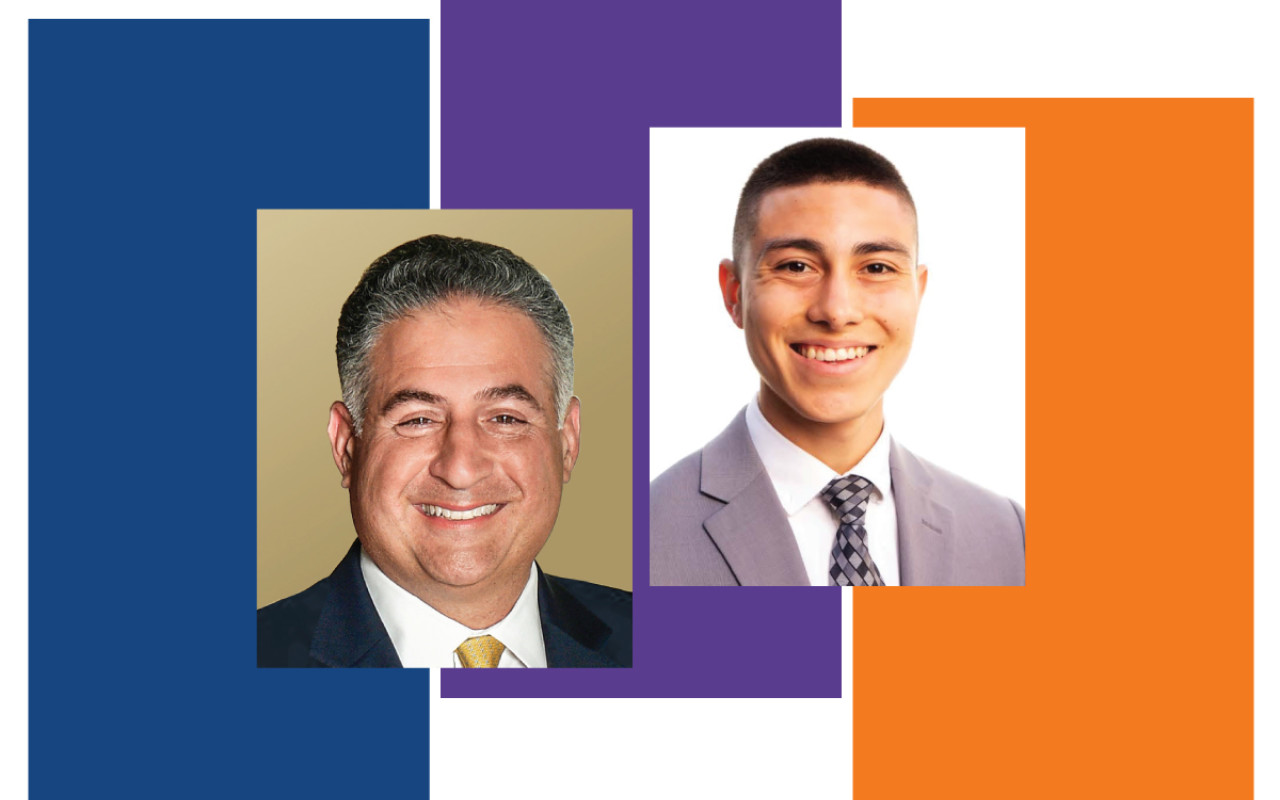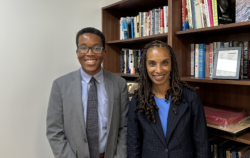
Ubben Posse Fellow Interviews: Joe Ucuzoglu
The Jeff Ubben Posse Fellows Program awards five exceptional Posse Scholars $10,000 each and the chance to spend 4-6 weeks during the summer shadowing and learning from a major industry leader. The interview below with Joe Ucuzoglu, CEO of Deloitte US, was conducted by Posse Scholar Kevin Rios, now in his junior year at Pepperdine University, who worked with Joe Ucuzoglu as a 2020 Jeff Ubben Posse Fellow. The conversation has been edited and condensed.
KEVIN: What were your parents like growing up and how did they influence you? Does this impact how you are influencing your children today?
JOE UCUZOGLU: They certainly instilled a hard work ethic in me and an appreciation for doing things incredibly well. My father in particular was a huge influence on my decision to choose accounting as a profession. He was an accounting major and while he did not ultimately go into a career in accounting, he impressed upon me how valuable an education in accounting and business would be as a foundation and that it would open numerous doors no matter what path I ultimately chose.
As you progress in your career, you realize that you want to succeed, and you want a vibrant career, but balance is essential and you want to make certain you are not over-vectoring in any one area. Building relationships and devoting time to family are the things you value most, you don’t want to get too preoccupied with school and career success being the only things that are valued. Because of this, I’ve been conscious about imparting certain values in my kids and helping them to have balance in how they view the world.
Let’s go back in time a bit to when you were a “kid.” We’re back at USC where you went to school. Who was Joe Ucuzoglu at 20 years old?
I loved being a student at USC, it was an incredible experience. I really enjoyed school and accounting clicked with me. I always viewed school as an opportunity to learn a lot more than what you just needed for the test. It was an opportunity to think more broadly about some of these subjects, to absorb the history of the profession, and a lot of that has served me well. The overall environment on campus was very much grounded in Trojan spirit, attending sporting events and activities and playing a variety of intramural sports. It was just a wonderful experience.
And your business career started pretty young as a kid buying and selling sports cards. What’s your take on leaders being born versus being created?
There are certainly some attributes that are inherently predisposed in certain people, but I don’t believe that there’s a preordained destiny. I never really thought of myself as likely to become the leader of an organization or have a CEO role. I did, though, always want to become a great professional. Getting deep experience in a particular profession, being able to add value to my clients, and serving the organization I was a part of have always been top of mind. The idea of running the overall organization never was something I was focused on. But it does demonstrate that the foundation for leadership is doing great work. It is becoming an expert at your craft, and then other opportunities follow. If you’re too obsessed early on with roles or titles, it’s unlikely those things are going to come to fruition because you have to earn the followership of those around you by doing the hard work and building credibility as a leader. That’s the ticket to ultimately being entrusted with more levels of responsibility.
That’s huge. How do you think your college experience created the leader you are today?
What you realize as you take on increasing leadership roles is that your success is not just about your knowledge in one narrow subject. It’s about having a broad worldview, being able to make sense of complex issues, and draw in disparate concepts. In any good academic education, you get exposed to a lot and you might not realize the relevance of what you’re learning at the time. For example, some may think, “Why do I need to learn about psychology? World History? Law?” Ultimately, those subjects all come together. Sometimes I feel like 70% of my role deals with psychology—understanding what motivates people and how do I get the best out of them? When you’re the CEO, it’s not about the work you do on a particular day, it’s about the work our 100,000 people do on that day. So how do I engage with our people in a way that helps them to be their very best and helps them to make sense of an incredibly complex world so that they have confidence that we’re headed in the right direction; they understand what’s going on in the world and how that affects our strategy and impacts how they engage with clients? A lot of this comes from the interdisciplinary learning that one does in college.
Let’s switch gears a little bit. What’s been the best day of your life? And, just for fun, you can’t mention your kids being born or getting married.
I’ll be really honest with you. The best day of my life was the day I was born. And when you look at things through a macro-lens, you realize the privilege of being born in this time and in this country. We definitely still have much more work to do as a society in terms of stamping out inequities and creating a more just society. But, on the whole, being born in this country and in this time where we are benefiting from exponential advances in technology, our society is being transformed in the midst of the fourth industrial revolution, and we operate in a free enterprise system which allows people to accomplish great things and drive value for society. I consider myself incredibly lucky going back to day one. It also causes you to realize that it’s not just about you. It’s not just about one person’s achievements, it’s about the broader environment in which we all need to contribute and give back, recognizing the good fortune that we’ve had.
I feel like you have a deep sense of gratitude towards life. Do you believe that you owe the world anything?
I owe the world a lot. When I look at the foundation that was laid by others to give me this opportunity, and then my responsibility to make this system better to provide that same opportunity to others, I owe a very significant obligation back to society. I believe the role I have gives me the ability to fulfill that obligation while practicing a profession I love. This gets to the heart of some of the evolving mindset of what it means to be a leading organization and to be a responsible business leader today. If you look at the old orthodoxy that the only objective of a corporation was profit maximization, that mentality has gone by the wayside. In fact, the Business Roundtable changed its statement of corporate purpose last year and made it explicit that the role of the corporation is to serve the needs of a broad cross section of stakeholders; we have to do right by our employees, communities, suppliers, and if we do those things well, a premium return to shareholders is actually an outcome. And over the long-term, I would argue that this is the best way to deliver returns for the shareholder. But this is a very different mindset from simply saying, “I, as the CEO, am charged with maximizing profits,” which oftentimes gets translated into a short-term context and doesn’t instill trust in society. It’s very important that all of us as business leaders are visible in the way we practice this mindset to earn society’s trust that what we’re doing is conducive to inclusive prosperity.
If you could share some wisdom on how young professionals can not only build successful careers, but also create a more prosperous society, how would you tell us to go about it?
I would say don’t get caught up too much in the short term and recognize that it’s a marathon, not a sprint. If you maintain a long-term mindset and keep things in balance—focusing on your family, career, and relationships—the hard work will build and pay off over time. There is so much need for great talent, and if you bring the mindset of putting in the hard work and earning the trust of those around you, the opportunities will naturally follow. You will go on to incrementally greater responsibilities, and make an impact not just on the organization you work for, but ultimately on the community around you. And it’s so important to have that mindset of wanting to use your platform to contribute more broadly to the world.
Read More:
Ubben Posse Fellow Interviews: Dr. Robert Min
Meet the 2020 Jeff Ubben Posse Fellows.

